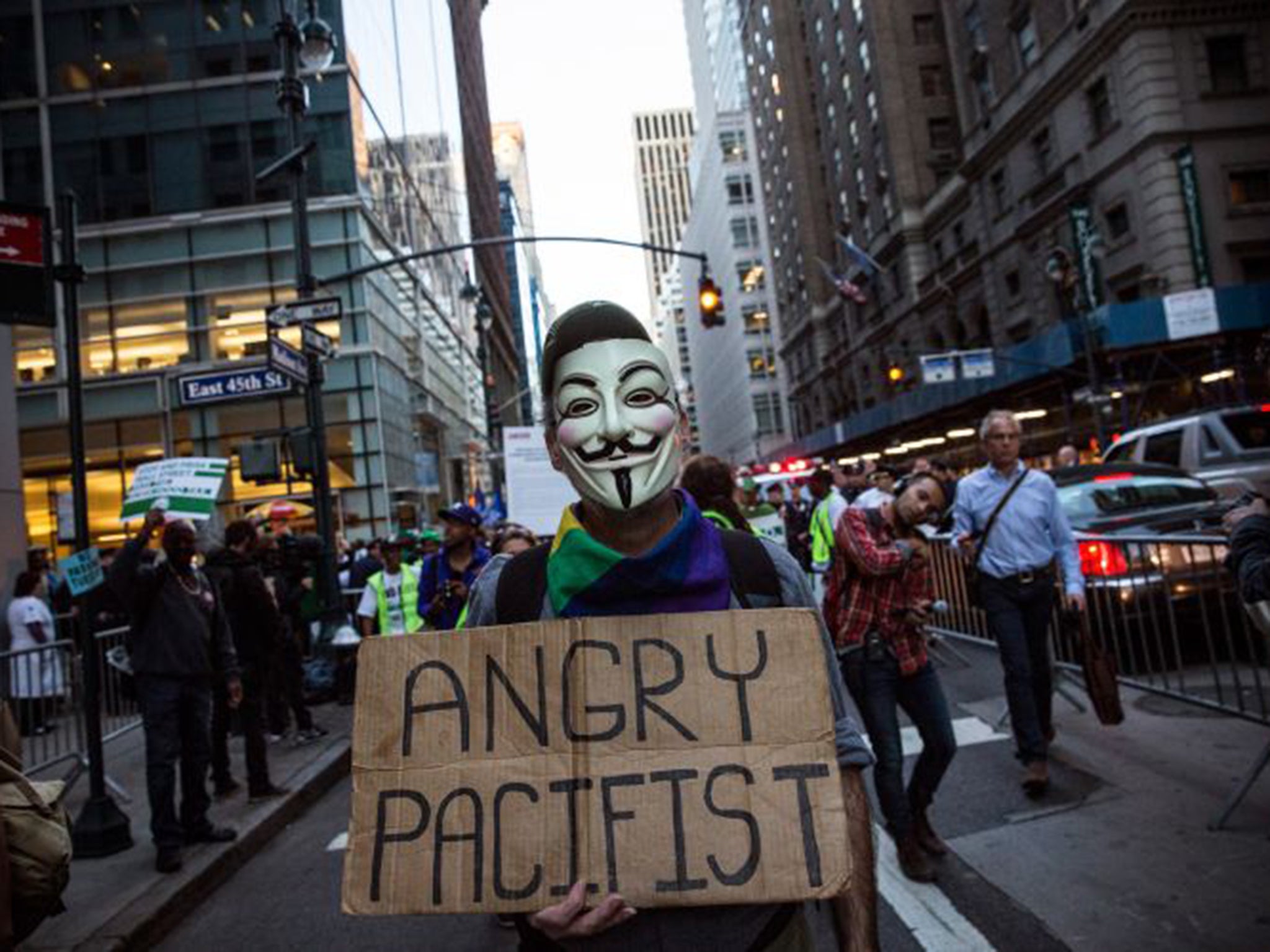'Slacktivism' works: Study shows people who like and retweet political slogans help protesters spread their message
A US study has found that online activists can double the reach of a real life protest

Your support helps us to tell the story
From reproductive rights to climate change to Big Tech, The Independent is on the ground when the story is developing. Whether it's investigating the financials of Elon Musk's pro-Trump PAC or producing our latest documentary, 'The A Word', which shines a light on the American women fighting for reproductive rights, we know how important it is to parse out the facts from the messaging.
At such a critical moment in US history, we need reporters on the ground. Your donation allows us to keep sending journalists to speak to both sides of the story.
The Independent is trusted by Americans across the entire political spectrum. And unlike many other quality news outlets, we choose not to lock Americans out of our reporting and analysis with paywalls. We believe quality journalism should be available to everyone, paid for by those who can afford it.
Your support makes all the difference.People who protest by casually “liking” or retweeting political content online do have an impact, a new study has suggested.
Dubbed "slacktivists", people who express support for causes online but rarely mobilise in real-life are often dismissed as superficial and ineffectual.
But analysis of more than a million tweets by researchers at the University of Pennsylvania and New York University (NYU) has found these people on the periphery do play a critical role in spreading the reach of protest movements.
The study, published in the journal PLOS One, focused on a few specific protests: the 2013 Gezi Park protests in Turkey, the Indignados movement against austerity in Spain and the Occupy movements.
Using location data embedded in the tweets to determine who was at the protest and who was observing online, the researchers looked at how the size of the online activists' social networks increased the likelihood of other people joining the physical protest.
The data showed most modern protests have a minority who are physically active and a much larger group - dubbed "the critical periphery" - who may tweet about it only once or twice but are responsible for doubling the protest’s reach.
Professor Sandra González-Bailón from the University of Pennsylvania said the armchair activists make the protest seem bigger and encourage more people to take part.
She said: "Of course social media doesn't push you to risk your life and take to the streets but it helps the actions of those who take the risk to gain international visibility.
"If you want a protest to grow, you need that influential core, but you also need the periphery echoing them.
"Peripheral users are not 'slacktivists.' They are quintessential to understand why products go viral or protests go big."
Join our commenting forum
Join thought-provoking conversations, follow other Independent readers and see their replies
Comments